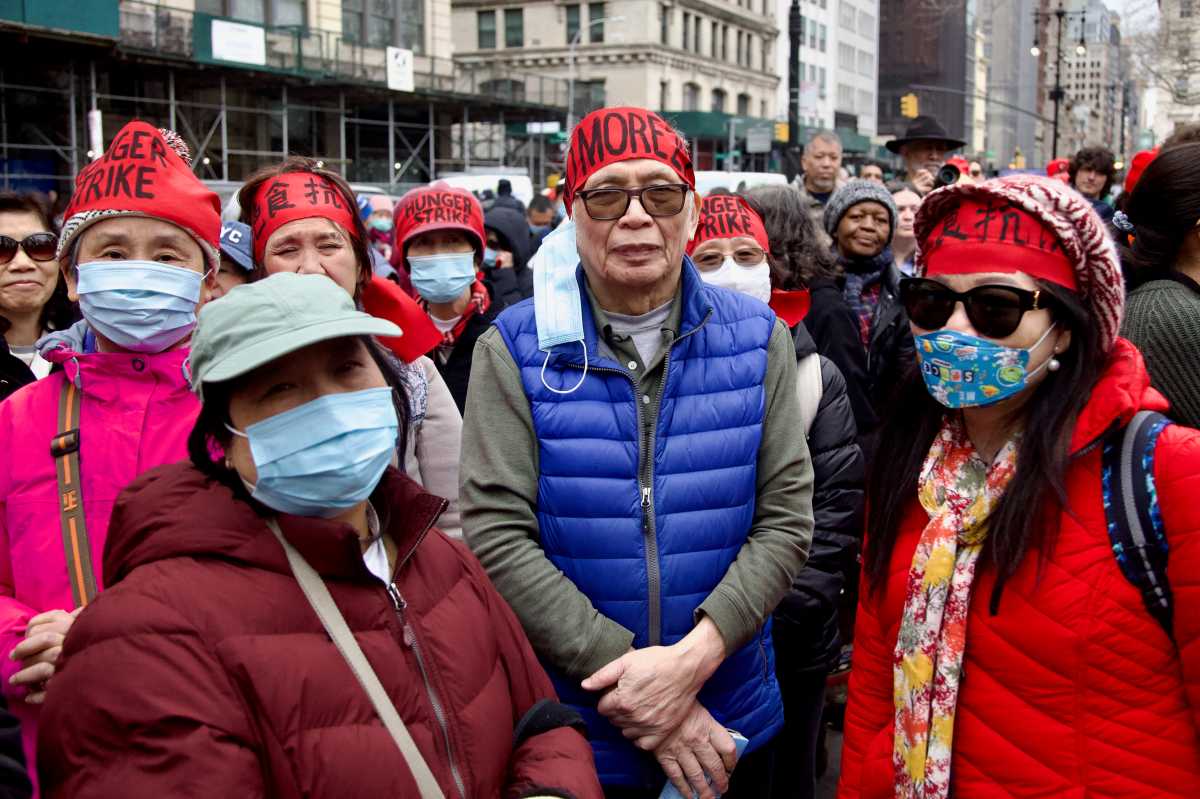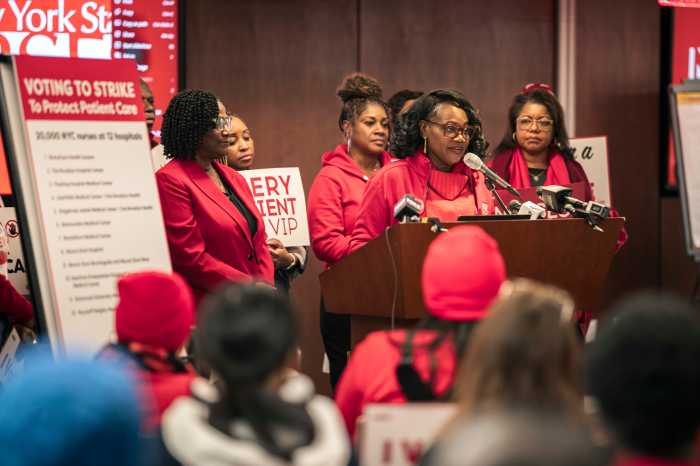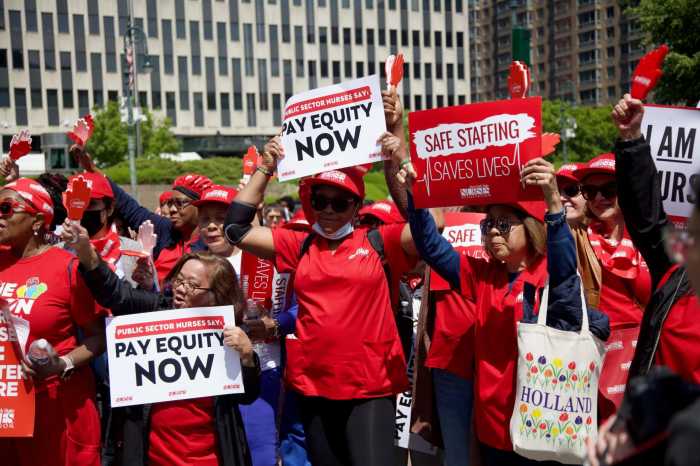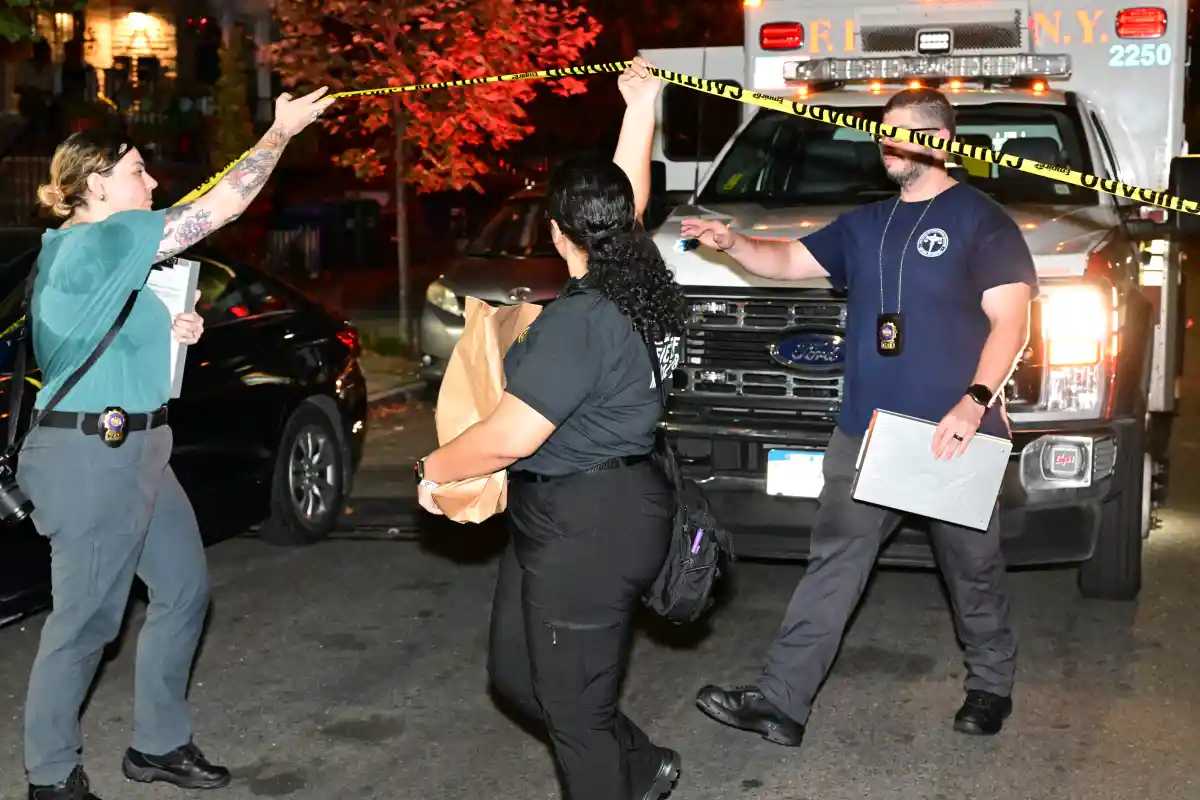For the last two years, a group of home care workers have been pushing a City Council bill to ban 24-hour shifts in their industry. Many of them have been rallying around this issue for almost 10 years.
Though the bill gained some momentum in the City Council when it was introduced to the City Council a year and a half ago, Council Speaker Adrienne Adams never brought it for a vote, insisting it’s a state issue. Now a group of around two dozen have started a hunger strike to demand that the Speaker let the full Council decide on the issue.
“It’s not that we don’t cherish our health. We know that hunger striking harms the body and causes great damage to us, but we have no choice,” said home aide Guihua Song in a speech that was translated into English. “Working 24 hours a day for a long time, our bodies have been tortured, broken down, and full of aches and pains. We cannot care for our children and families.”
The group of workers who will be rallying in front of City Hall during the strike for at least the next week are mostly aging women of color.
“Someone recently said to me to convince us not to hunger strike. He say, you’re too old. You are too sick,” said Wing Lam, who leads the Chinese Staff and Workers Association, a Chinatown worker center that has played a key role in the fight for the bill. “I say 24 hours is still going on. We, the people, are not cockroaches.”
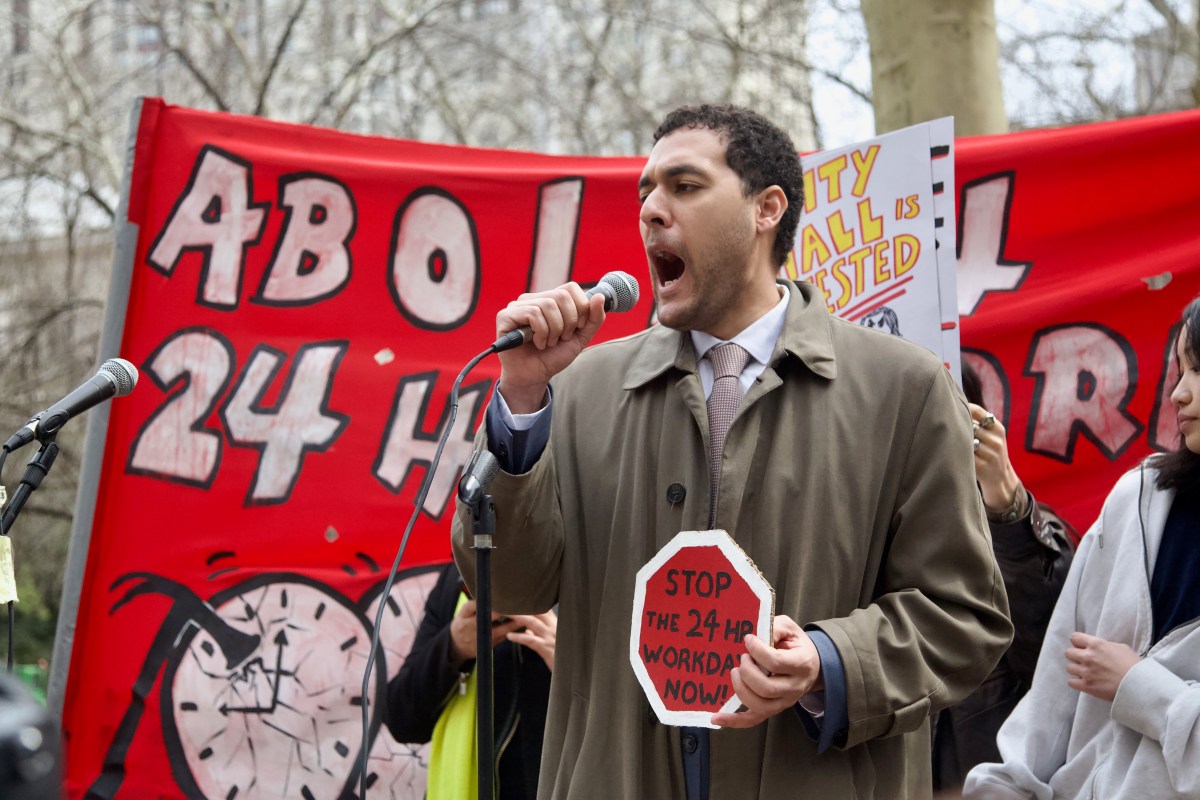
Speaker Adams told reporters Tuesday that she supports the workers’ “desire for improved working conditions” but that the issue has to be resolved at the state level in order to include Medicaid funding.
“We keep saying this. We cannot change State Department of Labor regulations or Medicaid reimbursement,” she said.
New York state law that mandates health aides can only be paid for 13 hours for each shift, which includes an unpaid eight-hour period for sleep and three hours for meals. But labor advocates say that break time is rarely followed in practice because of the unending nature of the job.
The bill Marte has introduced would limit the shifts that home care employers in New York City can assign to 12 hours within a 24-hour period, with exceptions for emergency situations and others with advanced notice.
During the hearing on Marte’s previous version of the bill in 2022, the health chairs of the state Assembly and Senate argued that home health aide reforms need to be passed at the state level with changes to Medicaid funding, which largely funds home care, to avoid potential gaps in coverage. But since Marte’s Council bill was tabled in 2022, the state legislature has not taken up the issue.
During that hearing, Councilmembers in favor of Marte’s legislation suggested that passing the legislation at the City Council level could spur state legislators into action. Two years later, the workers pushing for reform have grown increasingly desperate to move the dial on the issue, and Marte said that he has got the approval of a powerful home care union who was previously opposed to the Council version of the bill.
“We talked to 1199, we talked to disability advocates and we’ve gotten to a point where we feel like all the parties would be happy with the legislation,” Marte told amNew York.
1199, the healthcare union, was not present at the rally, but a host of other unions were there in solidarity — many of which are in the middle of heated labor battles themselves. The newly formed She Wolf Bakery union, the currently striking Mobilization for Justice Union, the New York Taxi Worker Alliance, the CUNY’s PSC and the Amazon Labor Union, all delivered speeches demanding that Speaker Adams bring the bill for a vote.
“This is an unbelievable moral failure. How a society treats its most valuable is a reflection of the morality of that society,” said Bhairavi Desai, executive director of the NYTWA, whose members won economic relief from the city after they went on hunger strike in 2021. “It’s something that the City Council must address.”
Read more: Man killed in hit-and-run on Canal Street in Little Italy



